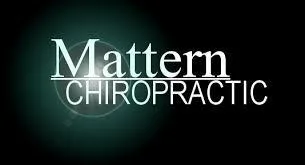PUSE PRESSURE; POTENTIAL PITFALLS AND PROBLEMS
- posted: Dec. 27, 2017
Pulse Pressure: ___= You _<__ 40= Ideal
High BP is a definite risk for heart attacks and strokes. But so is another measure you may not know about. The significance of Pulse-Pressure has been known for some time, but its importance is widely ignored by most medical professionals. It is, however, a very accurate predictor of future cardiovascular events, particularly in the elderly.
There are two numbers in Blood Pressure readings, the top systolic-as your heart ejects blood into a closed circulatory system (hopefully closed) and the bottom- diastolic- the system at rest pressure in between heart beats. The subtraction between the top and bottom number is the Pulse Pressure. So 120/80 has a pulse pressure of 40. (120- 80). The greater the number of your pulse pressure the greater risk you have for a future heart attack or stroke. An increase in pulse pressure over time is likely due to the arteries becoming stiffer, more like straws rather than spongy rubber tubes as you age.
Pulse Pressure is a Better Predictor of Impending Heart Attack:
From the Framingham study, a 65 yr. old man with blood pressure of 170/70 has a risk of heart failure or other cardio-complications 2x higher than another 65 yr. old man with a BP of 170/110! This risk is higher simply because his pulse pressure is greater. Even in individuals with a relatively low cardiovascular risk (normal lipids, BP, weight, non-smoker etc.) a high pulse pressure is a very significant predictor of future cardiovascular events-especially those resulting in the death of the individual.
One begins to see a gradual increase in cardiovascular deaths as the pulse pressure climbs to 45-55 mm Hg. Very significant increases in future cardiovascular deaths begins to occur when the pulse pressure goes to 60-65 mm Hg and above. In one of the biggest and best controlled study of this situation researchers correlated that for each 10 mm Hg increase in pulse pressure there is a corresponding 22% increase in cardiovascular death risk. And, when compared to increases in systolic and diastolic blood pressures, pulse pressure elevations were found to be the most accurate and crucial predictor of future cardiovascular events.
Certain drug classes can definitely lower blood pressure but as far as I know, none have been shown to improve or restore elasticity to the blood vessels. As a result, most allopathic doctors use drugs to lower overall blood pressure values rather than pulse pressure. In many cases, improvements with these efforts can be somewhat misleading.
Blood Pressure and probably Pulse Pressures commonly go up for two basic reasons: 1. Fluid dynamics. One pound of fat required 30 extra miles of capillaries. If your 50 lbs. overweight thats 1500 extra tube miles! Your heart beats harder to push through a longer closed system. (Example: Is it easier to blow through a straw or a garden hose)? 2. The solution to pollution is dilution Unhealthy cells weep out fluids and dissolved substances across their membranes. This fluid gathers in the outside the cells in the extracellular space. This extra fluid squeezes the circulatory tree again and more pressure is required to drive blood through the whole system.
Other factors like oxidative stress damage the internal lining of vessels and plaquing occurs narrowing the lumen or hole inside the vessel.
Enzymes are the spark of life; they are like spark plugs of the body. Minerals, vitamins, hormones, cofactors, carbohydrates, non-enzyme proteins, lipids and fats can do NO WORK, zero, zilch, nada without enzymes.
Enzymes help turn the crank that pulls material across the cell membrane to the inside of the cell where things happen. Improved activity at the level of the cell membrane can improve fluid distribution ratios in the body. Charged particles share better with each other and important Redox reactions occur with less stress to the system. With less pressure in the extracellular space blood pressure improvements may take place.
Monday
8:00 am - 1:00 pm
2:15 pm - 6:15 pm
Tuesday
7:00 am - 1:00 pm
Wednesday
8:00 am - 1:00 pm
2:15 pm - 5:30 pm
Thursday
8:00 am - 1:00 pm
2:15 pm - 5:30 pm
Friday
Closed
Saturday
Closed
Sunday
Closed
Visit Our Office
--mi
Mattern Chiropractic
Address
1231 Cumberland Ave
West Lafayette 47906, US
Contact Information
(765) 463-7337
